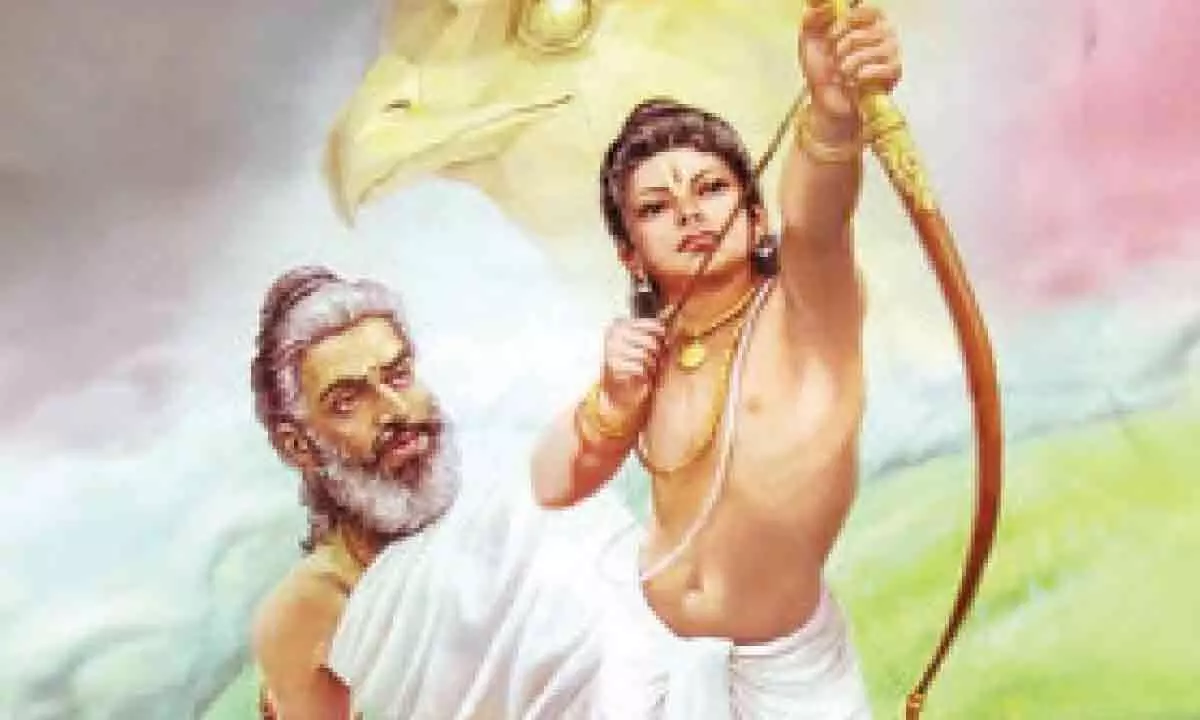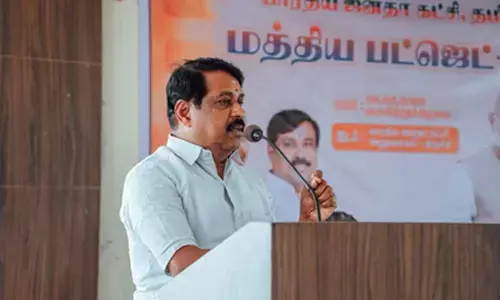Travel for Knowledge

We find several stories in which students moved to various lands, seeking various gurus. Knowledge was sought to be attained facing all odds, sometimes to defeat the enemies. We hear stories of the wandering monks (like sophists in ancient Greece) who travelled to far off lands in search of knowledge. It was also the obligation of a teacher to teach even an enemy if he approached him as a student, knowing that the student might use it against him later
Talking about the boundless nature of human experience and knowledge, Ulysses, the veteran of Trojan war (protagonist in Tennyson’s poem with the same name), compares it to ‘an arch wherethrough/ Gleams that untravelled world, whose margin fades/ Forever and forever when I move’. The more we move, the boundaries move farther and farther. ‘I cannot rest from travel’ he says. Every hour ‘saved from that eternal silence’ (which is death) is a ‘bringer of new things’, he says and over the kingdom to his son to move on to newer and newer lands.
The Mahabharata holds the same value. In his famous advice to his master, Vidura, the wise minister, says how earth swallows two people, like a serpent swallows frogs lying in holes. The two unfortunates are – a king who does not maintain an aggressive stand and a brahmin who does not seek new lands in pursuit of knowledge. A very pregnant statement. Lack of aggressiveness is perceived as weakness, and the king becomes a target. We call it credible deterrence now. A brahmin who does not move out is like the proverbial frog in the well. As people who guided society and also advised the king on various issues including statecraft, they were expected to move and learn from several people, while other sections attended to their duties. The word brahmin has to be replaced by the word student now, as the burden of acquiring knowledge is not limited to brahmins.
We find several stories in which students moved to various lands, seeking various gurus. Knowledge was sought to be attained facing all odds, sometimes to defeat the enemies. We hear stories of the wandering monks (like sophists in ancient Greece) who travelled to far off lands in search of knowledge. It was also the obligation of a teacher to teach even an enemy if he approached him as a student, knowing that the student might use it against him later. We see the example of Drona who taught weapons to the son of Drupada in the Mahabharata. In the biography of Shankaracharya we read that the great scholar Kumarila Bhatta (a senior contemporary of Shankaracharya) went in the guise of a Buddhist, leaving his caste marks like the sacred thread, stayed with Buddhist gurus and learnt the intricacies of Buddhism, with the intention of defeating them in debates. Vidura in the Mahabharata, converses in mlechha language (probably Greek, as the scholars interacted with them in those days) when he wants to give confidential advice to Dharmaraja. We had a lot of cultural give and take with the Greeks and Persians. Bhartrihari, the philosopher king has devoted a whole section in his book of wise sayings to glorify knowledge and he says that knowledge is the only trusted friend in foreign lands. In a recent visit to Cambodia, I learnt that Sanskrit was the court language for more than a thousand years there. It showed how the ancient world was influenced by Indian culture.
A strange ban on crossing the ocean seems to have come sometime during the Middle Ages in Indian society. The Middle Ages saw a wave of puritanism in several fields. Some secondary level texts appeared which laid down norms for social conduct and purity of tradition, as a defensive reaction to the external attacks at that time. But that is not the spirit of our older texts.
As the world has become ‘small’, seeking knowledge in strange lands is highly routine. Our Cambodian guide told us that the temple robbers who stole artefacts and sold them to colonizers did a good thing. All the artifacts in the museums of France and other places are the cultural ambassadors to Cambodia, boositing tourism. It should be so for India too.
While the old knowledge seekers travelled to far off lands, they now face an opposite situation of knowledge bombarding from every quarter. Several distractions like tik-tok bombard us. They can be trojan horses to weaken societies. Good and bad are both on the tip of the keyboard. This situation can have two conflicting results – it can make a student lazy about seeking knowledge or it can create a new generation of enlightened global citizens.
(The writer is a former DGP, Andhra Pradesh)









